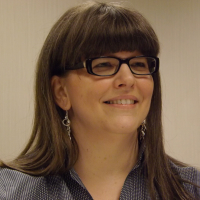Former-and-current U.S. Presidential hopeful Rick Perry is in Israel to burnish his pro-Israel bona fides in advance of the 2016 campaign, and also to announce plans for Israel’s first non-Israeli institution of higher education. As The Texas Tribune reports:

On Wednesday in Jerusalem, Israeli President Shimon Peres, Texas Governor Rick Perry, and Texas A&M University System Chancellor John Sharp are expected to announce plans to establish a Texas A&M campus in Nazareth. It will be called Texas A&M Peace University.… “Our side of the equation is to locate and make available land, which is a scarce resource in Israel,” said [Manuel Trajtenberg, chair of Israel’s Planning and Budgeting Committee of the Council for Higher Education].Trajtenberg said he anticipates significant student interest. “Of course, we would appeal to potential students in the area, but also Jewish Israelis of all sorts…” he said. “I suspect there will be a strong demand for this institution from students who would prefer to study in English and are comfortable in a multicultural environment.”
Though a first for Israel, Texas A&M has maintained a presence beyond American borders since 2003, with a branch campus in Qatar. The primary difference between the Qatar and Israel campuses is funding: The Qatar institution is supported entirely by the Qatar Foundation; the Israeli branch will depend on international donors. Fundraising help will come from (among others) Chancellor John Sharp, who is Catholic and told The New York Times that he’s wanted to take this step since taking his position in 2011: “I wanted a presence in Israel… I have felt a kinship with Israel.”
Also instrumental to the plan is the Texas-based evangelical power-pastor John Hagee:
When Mr. Sharp began exploring the idea, he sought the help of John C. Hagee… who has helped raise tens of millions of dollars for projects in Israel and for Jewish settlements in the West Bank. In March 2012, Pastor Hagee told Prime Minister Benjamin Netanyahu of Israel about Mr. Sharp’s plans and helped connect Mr. Sharp and other Texas A&M officials with Israeli leaders.
…“The things we have in common with Israel are much greater than anything that would be separating us,” [Hagee said].
You remember John Hagee—he’s the guy who thinks Hitler was sent by God to “chase the Jewish people back to the land.” I don’t know if he’s listed that idea on the “things in common” or the “things that separate us” side of his ledger, but neither that opinion nor Hagee’s theology have ever kept right-wing Jews in Israel or America from using his fundraising prowess for their own ends.
All of which leads me to instinctively wrinkle my nose. The tendency among Christian Zionists (and not a few Jewish Zionists) to treat the modern nation-state of Israel as a sort of Disney version of The Promised Land is not, to put it mildly, my favorite thing. It’s a real place, with a real culture, real joys and sorrows, and not some pie-in-the-sky fulfillment of ancient prophecy.
But on the other hand, there’s this:
As many as 5,000 students will study there, officials said, with most coming from the Arab communities in and around Nazareth. Arabs make up more than 20 percent of the population of Israel, but only 11 percent of the student body in the country’s higher-education system.
…“There’s no significant academic presence in Arab towns and cities in Israel,” Mr. Trajtenberg said. “It will have a symbolic impact beyond the academic impact.”
Now, it could be argued that if Israel’s Council for Higher Education is worried about the lack of academic opportunity in Arab-Israeli municipalities, it could use some of the national budget (into which the citizens who live in those places pay their taxes) to address the issue. Waiting for foreigners to solve the problem isn’t necessarily the most responsible option.
Yet the fact is that the State of Israel has not chosen to invest in higher education in Arab-Israeli (more properly: Palestinian-Israeli) locales, and along comes Texas A&M—hardly a slouch in the higher education department. English-language instruction is a frankly deft way around the political stink that would no doubt arise if Israel dared establish an Arabic-language university, and should also provide anyone graduating with a leg up in the global marketplace. In short: Who am I to begrudge the good people of Nazareth a world-class institution?
Of course, all of this remains in the wait-and-see stage—not only have planners not yet broken ground, they haven’t even bought land; the Times reports that fundraising should begin “within weeks.” Many a grand idea has come and gone without leaving so much as a ripple.
But ultimately, I think I can only wish this project well. Given that Israel’s government has typically treated its Palestinian-Israeli citizens as little but a demographic burden (at best), Texas A&M represents the possibility of genuine improvement. Here’s to hoping it works.






